Professor Valentina Arena, UCL
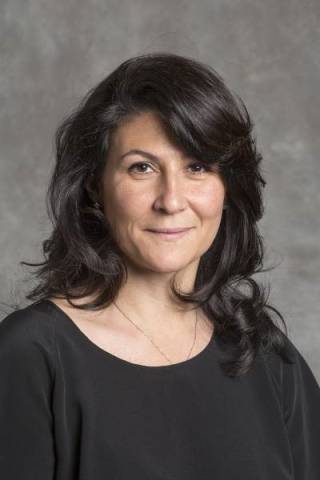 Principal Investigator
Principal Investigator

Valentina Arena is Professor of Ancient History at University College London, UK. Her work focuses on the history of ancient ideas and ancient political thought as well as the wider intellectual landscape of the Roman Republic. She is the author of Libertas and the Practice of Politics in the late Roman Republic (Cambridge 2012) and the editor of Liberty: an Ancient Concept for the Contemporary World (special issue of Journal of the History of European Ideas 2016, republished by Routledge Liberty: Ancient Ideas and Modern Perspectives 2021).
Alongside the Companion to the Political Culture of the Roman Republic (forthcoming, 2021), she has co-edited two volumes on Varro and the antiquarian tradition, Varronian Moments (special issue of the Bulletin of the Institute of Classical Studies, 2017) and Reconstructing the Republic: Varro and Imperial Authors (special issue of Res publica Litterarum 2018).
Dr Stephen Blair, UCL
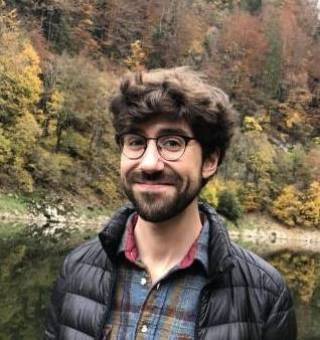 Research Fellow
Research Fellow

Stephen Blair’s research centres on the fragmentary remains of the earliest Roman historical literature in prose, epic and drama. He received his PhD in Classics from Princeton University in 2019 and joined FRRAnt as a postdoctoral research fellow in December 2020. His current monograph project is a thematic study of the methods and interests of Republican ab urbe condita historians, whose choice of a narrative form stretching from the earliest traditions to the authors’ own day enabled them to negotiate ruptures and continuities between a malleable antiquity and a changing present.
Dr Richard Marshall, UCL
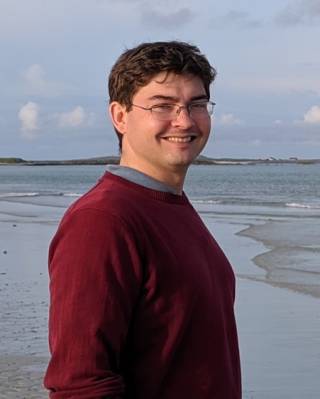 Research Fellow
Research Fellow

r.m.a.marshall@ucl.ac.uk
Richard joined UCL in 2020 as a Research Fellow of FRRAnt. His work focuses on the scholarship of Republican and early Imperial Rome, its philosophical and ideological underpinnings, and its fate at the hands of subsequent ancient readers and early editors. He has allied interests in ancient historiography and pedagogy, the history of the book, and ancient mathematics. He is currently working on an edition of the mathematical texts transmitted with the corpus of Roman land-surveying treatises, with future plans to edit the fragmentary remains of Suetonius.
Before joining UCL, Richard also worked on the 'Fragments of the Republican Roman Orators' project at the University of Glasgow, and has lectured at Oxford, Glasgow, and the National University of Ireland, Galway.
Dr Domenico Giordani, UCL
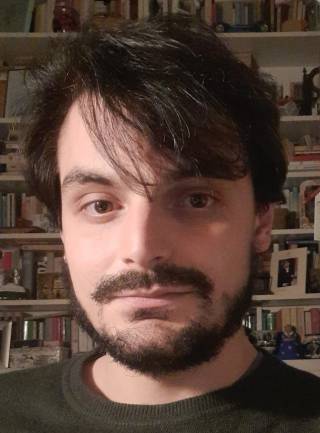 Research Fellow
Research Fellow

domenico.giordani@lmh.ox.ac.uk
Domenico Giordani holds a DPhil in Classical Languages and Literature from the University of Oxford (St John’s). He worked as Language Instructor at the Faculty of Classics at Oxford and as Lecturer in Latin at Lady Margaret Hall (Oxford). His research interests gravitate around textual criticism, early Latin metre, socio-linguistics, and the application of interpretative frames drawn from anthropological research to the study of ancient societies.
Domenico joined UCL in October 2021 as a Research Fellow of FRRAnt. In his capacity as a member of the FRRAnt team, he contributes to the editing and commenting of the scattered remains of antiquarian works from the Republican period. His other projects include a critical edition with commentary of Titus Maccius Plautus’ Trinummus (in progress for Oxford University Press) and a monograph on silence and marginality in Roman culture.
Dr Antonino Pitta’, Universitá Cattolica (Milan)
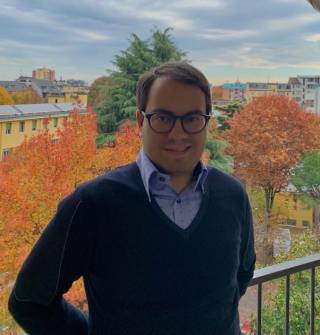 FRRAnt Visiting Expert and UCL Honorary Lecturer
FRRAnt Visiting Expert and UCL Honorary Lecturer

Antonino Pittà is an Honorary Lecturer at UCL and postdoctoral Research Fellow at the Università Cattolica del Sacro Cuore (Milan). He holds a PhD in Latin Philology from the Scuola Normale Superiore di Pisa.
His research interests include manifold aspects of Latin literature and material culture, at different stages of their historical development: Roman Antiquarianism and its transmission, with special attention to Varro’s fragmentary works; late-antique Lexicography and its relationship with Early and Late-Republican literature (esp. Nonius Marcellus and the lex Lindsay); the manuscript tradition and early reception of Virgil’s works; poetry of the Imperial Age (mainly Statius, along with Ovid and Lucan); style and content of technical prose (Varro, Pliny, Solinus). He has published two critical editions with a commentary (Varro’s De vita populi Romani and Statius’ Silvae Book I: Domitian’s poems).
As a member of the Advisory Board, he takes part in the survey of ancient sources, which is aimed at reviewing and editing the fragments of Roman Republican Antiquarians. He contributes to the general research activity of the Board and takes part in collateral initiatives such as workshops and seminars concerning Republican Antiquarianism.
Professor Giorgio Piras, La Sapienza University (Rome)
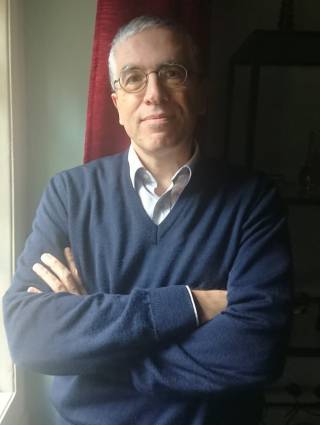 FRRAnt Senior Visiting Expert and UCL Honorary Lecturer
FRRAnt Senior Visiting Expert and UCL Honorary Lecturer

Giorgio Piras is a Professor of Classics (“Filologia classica”) at the Department of Classics at La Sapienza, Rome University. His work has focused particularly on Varro’s De lingua Latina, including the publication ofVarrone e i ‘poetica verba’. Studio sul settimo libro del ‘De lingua Latina’ (Bologna 1998). He is currently working on a new critical edition of Varro’s text for the ‘Bibliotheca Scriptorum Graecorum et Latinorum Teubneriana’, as well as preparing a comprehensive study on the manuscript tradition and a complete commentary on the text. Giorgio has also carried out research on the history of grammatical ancient theories, the transmission of classical and humanistic texts, and the history of classical scholarship. He has authored and edited several volumes and articles on these subjects. Giorgio has previously been a member of the Academic Senate and is currently the editor in chief of the journal Scienze dell’Antichità and Head of the Department of Classics at La Sapienza. Giorgio is also Member of FRRAnt Editorial Board and Academic Advisory Board.
Dr Daniel Vallat, HiSoMA Laboratory and Université Lumière Lyon 2
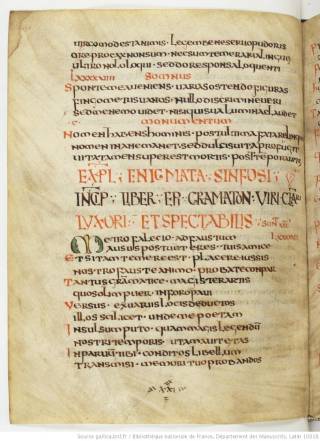 FRRAnt Senior Visiting Expert
FRRAnt Senior Visiting Expert

Dr Daniel Vallat is lecturer in Latin and Greek, member of the HiSoMA laboratory, Honorary member of the Institut Universitaire de France (IUF), class of 2014, and Managing Editor of the online journal Eruditio Antiqua. His field of expertise is Latin poetry and late antique commentaries, Greco-Latin philological erudition and Greco-Latin literary onomastics. He is the author of numerous publications, amongst which include: Onomastique, culture et société dans les Epigrammes de Martial ; Poétique(s) des commentaires antiques, co-edited with S. Clément-Tarantino and J.-Ch. Jolivet ; Servius, Commentaire sur l’Enéide de Virgile, Livre 1, co-edited avec M. Vallat-Béjuis. He is currently working on the edition (with translation and commentary) of the Latin Anthology and on the Scholia Veronensia to Virgil.’
Dr Martina Farese, La Sapienza University (Rome)
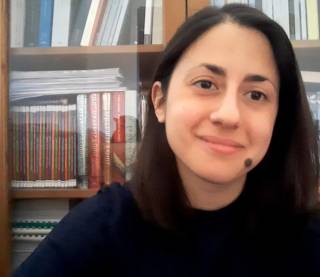 FRRAnt Visiting Expert and UCL Honorary Research Associate
FRRAnt Visiting Expert and UCL Honorary Research Associate

Martina is a postdoctoral Research Fellow at “La Sapienza” University in Rome and she joined the FRRAnt project in 2021 as a Visiting Fellow. She holds a PhD in Latin Philology from “La Sapienza” University, where she conducted research on Varro’s Menippean Satires, investigating, in particular, their relationship with Roman Comic Theatre.
She has also collaborated on various projects, working on sources on ancient italic civilizations and on Roman legal texts. Currently, her work focuses on the depiction of Nature and italic landscape in Roman Antiquarianism. Her main research interests are Varro, scholarly tradition and Roman Antiquarianism, as well as Roman satirical writing and ancient Menippean Satire.
Professor Christopher Smith, University of St Andrews
 FRRAnt Editorial Board Member and CEO of the AHRC
FRRAnt Editorial Board Member and CEO of the AHRC

Professor Christopher Smith is Professor of Ancient History at the University of St Andrews and was Director of the British School at Rome, the UK’s leading humanities and creative arts research institute overseas, from 2009 to 2017.
Professor Smith’s research explores constitutionalism and state formation with particular emphasis on the development of Rome as a political and social community, and how this was represented in ancient historical writing and subsequent political thought. He is the author or editor of over 20 books, including a major edition of the Fragments of the Roman Historians, and is advisor to a project on The Fragments of Republican Roman Orators.
Jessica Clarke, UCL
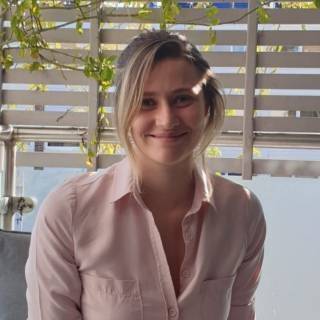 Administration and Research Support - Project start until 2023.
Administration and Research Support - Project start until 2023.

Jessica joined the FRRAnt Team as the project administrator and research support for the FRRAnt project. She has previously worked on multiple research projects associated with the British Museum, including two recent exhibitions. She is also currently a PhD student in the UCL History department, where her esearch examines the relationship between theatre and political culture in the late Roman Republic and early Imperial period. Taking a new approach to the well-studied literary sources on this topic, Jessica’s research explores the visual record, aiming to re-evaluate the role of theatre within Roman socio-political culture. Jessica finished her role as Project Administrator and Research Support mid 2023 to focus on the finalisation of her PhD.
Melanie Horstead, UCL
 Project Administrator and Research Assistant 2023 -
Project Administrator and Research Assistant 2023 -

Melanie took over the Project Administrator role for the FRRAnt Team in 2023. Melanie is a project management professional and conference organiser at UCL (University College London). She helps establish and develop projects from concept through to operation and delivery and liaises with teams to help produce post-project impact reports. She works directly with external partner organisations, and is adept at partnership management and building relationships with individual stakeholders and teams alike. She has extensive experience of managing and orchestrating bi-lingual conferences in English and French as part of her Project Administrator roles at UCL. She manages and oversees project budgets and deals with the logistics of various systems and processes for research projects at UCL. She is also responsible for website content management. Melanie holds a Masters in 'Africa and Development' from the University of Birmingham.
Dr Tom Couch, UCL
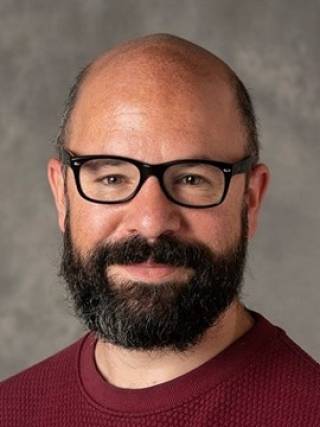 Senior Research Software Developer
Senior Research Software Developer

Tom joined UCL in 2013 as a Research IT Facilitator where his job was to help researchers to use IT in their research through training, writing documentation, and direct support. Over time the direct support increasingly involved writing code, so in 2021 he joined the ARC collaborations team as a Research Software Developer. FRRAnt was his first project in this role, and he has loved helping to enable the platform to evolve and support the research team ever since.
Amanda Ho-Lyn, UCL
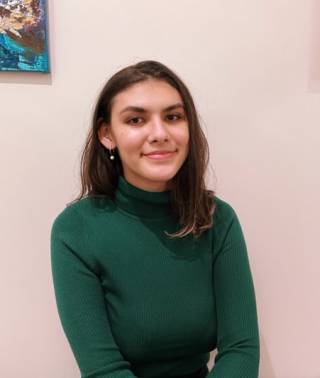 Research Web Application Developer
Research Web Application Developer

Amanda joined UCL ARC shortly after completing her masters in 2021. She joined FRRAnt in 2022 and she has found it to be both fulfilling and challenging in (mostly) equal measures. Amanda has really enjoyed working with the team and she looks forward to crafting new features and solutions for them.
Dr Jonathan Cooper, UCL
 Head of Research Software Engineering
Head of Research Software Engineering

Jonathan leads on the Software Engineering aspects of Project FRRAnt and leads Research Software Engineering work at UCL, supporting researchers in developing high quality software to improve the reproducibility, sustainability and impact of their research. His research in this space is focused on designing the career structures and ways of working to allow these and other research technology professionals to flourish, and so maximise the effectiveness and impact of research, both at UCL and internationally.
Previously he has worked on the application of software engineering to computational biology, mostly using domain-specific languages to describe mathematical models of biology, and developing the tools required to make these more usable for researchers.
Project FRRAnt Academic Advisory Board
Professor Tim Cornell (University of Manchester); Professor Wolfgang de Melo, (Wolfson College, University of Oxford); Professor Mario De Nonno (University of Roma3); Professor Marcus Deufert (Leipzig University); Professor Carlotta Dionisotti (King’s College London); Professor Alessandro Garcea (Sorbonne University, Paris); Professor Adam Gitner (Bavarian Academy of Sciences and Humanities, Ludwig-Maximilians-Universität); Professor Dario Mantovani (Collège de France); Professor Gesine Manuwald (UCL); Professor Claudia Moatti (University Paris 8- University of Southern California); Professor Glenn W. Most (University of Chicago, and an External Scientific Member of the Max Planck Institute for the History of Science in Berlin); Professor Christopher Smith, (University of St. Andrews, Society of Antiquaries Scotland, the Royal Historical Society, the Society of Antiquaries of London, the Royal Society of Arts; Professor Catherine Steel (Glasgow University); Professor Jörg Rüpke (Erfurt University); Dr Benet Salway, (UCL); Professor Christopher Smith, (University of St. Andrews, Society of Antiquaries Scotland, the Royal Historical Society, the Society of Antiquaries of London, the Royal Society of Arts; Professor Katharina Volk (Columbia University, New York).
 Close
Close

